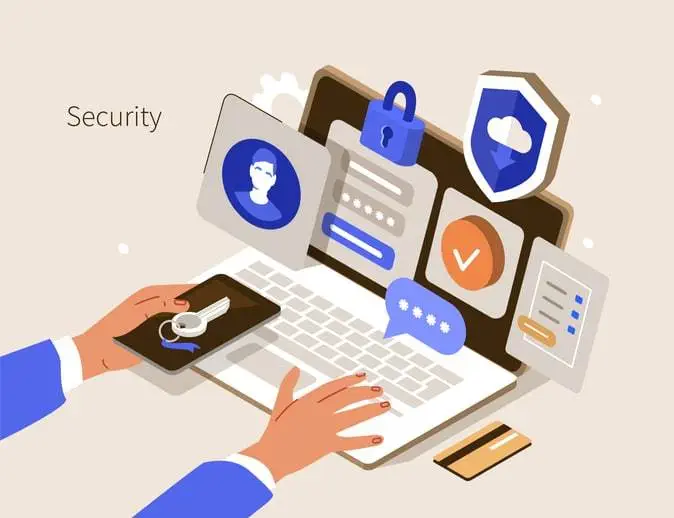Virtual CIO Consulting Services
At EDG.Tech, we offer personalized consultations at the executive level, providing invaluable insights and expertise to drive your business forward.
What exactly is a Virtual CIO (Fractional CIO or vCIO)
What are the benefits of a Virtual CIO (vCIO)

Cost-effective
Hiring a Traditional full-time CIO can be expensive for many small and medium-sized businesses. vCIOs offer a flexible and cost-effective alternative for companies as they are considerably less cost than a full-time CIO.

Expertise
A vCIO is an experienced person or organization that offers a wide range of skill that’s informed across multiple lines of business. Their services help provide strategic guidance and advice to organizations to help them achieve their business goals.

Scalability
vCIOs provide scalable services that are suited to the changing needs of an organization. As businesses grow, they can help them scale up their IT infrastructure, implement change management and advise the SMB more effectively than a traditional MSP.

Vendor Management
Hiring a Traditional full-time CIO can be expensive for many small and medium-sized businesses. vCIOs offer a flexible and cost-effective alternative for companies as they are considerably less cost than a full-time CIO.

Risk management
vCIOs can help your company manage the risks associated with IT infrastructure by identifying potential vulnerabilities. They can also help you plan a security plan and implement security procedures.

Enhanced decision-making
By providing IT guidance to businesses, vCIOs can help enhance decision-making processes, which results in better business outcomes.

Saves time
vCIOs provide scalable services that are suited to the changing needs of an organization. As businesses grow, they can help them scale up their IT infrastructure, implement change management and advise the SMB more effectively than a traditional MSP.
What are the differences between a Virtual CIO and a Traditional CIO (vCIO vs tCIO)

Responsibilities
- Virtual CIOs typically provide proactive strategic technology planning, third-party vendor management, security, Data Backup, Recovery plans, and overall IT strategy. They are responsible for ensuring that the technology infrastructure meets the needs of the business and remains secure and efficient.
- tCIO’s are typically full-time employees of larger companies or public sector organizations. They are responsible for managing the entire IT department and implementing technology solutions that support the business’s strategy of the organization.

Cost
- Virtual CIOs typically provide proactive strategic technology planning, third-party vendor management, security, Data Backup, Recovery plans, and overall IT strategy. They are responsible for ensuring that the technology infrastructure meets the needs of the business and remains secure and efficient.
- tCIO’s are typically full-time employees of larger companies or public sector organizations. They are responsible for managing the entire IT department and implementing technology solutions that support the business’s strategy of the organization.

Experience and Qualifications
- vCIOs are usually experienced IT professionals who have worked in various industries and have a broad range of skills in multiple technologies and have extensive cybersecurity experience. They typically have experience working with small and medium-sized businesses and implementing custom IT solutions. They are often certified in various areas of IT.
- tCIOs are highly experienced individuals with a Bachelor’s or Master’s degree in computer science, business or information systems. They have extensive experience leading IT departments and managing teams of technical experts. They are skilled at strategic planning, budgeting, and executing IT projects.

Flexibility
- vCIOs are usually experienced IT professionals who have worked in various industries and have a broad range of skills in multiple technologies and have extensive cybersecurity experience. They typically have experience working with small and medium-sized businesses and implementing custom IT solutions. They are often certified in various areas of IT.
- tCIOs are highly experienced individuals with a Bachelor’s or Master’s degree in computer science, business or information systems. They have extensive experience leading IT departments and managing teams of technical experts. They are skilled at strategic planning, budgeting, and executing IT projects.
What are the differences between a Virtual CIO and a Traditional CIO (vCIO vs tCIO)

Technical expertise
A vCIO should have extensive knowledge and skills in information technology, including infrastructure, security, and operation of new and emerging technologies.

Communication skills
A vCIO should be an effective communicator and able to convey technical concepts and strategies to business stakeholders and team members in a clear and concise manner.

Business acumen
A vCIO should understand the business goals and objectives of the organization to align strategic planning and technology solutions.

Leadership skills
A vCIO should have the ability to lead technical teams, manage stakeholder expectations, and motivate employees to achieve company goals.

Adaptability
A vCIO should be adaptable to changing business needs and evolving technology trends.

Vendor management skills
A vCIO should have the ability to evaluate and manage vendor relationships to ensure seamless integration of technology solutions.

Cost management
A vCIO should have experience in budgeting and cost management to ensure the organization is making optimal investments in technology.

Time management
A vCIO should have the ability to manage time effectively and prioritize tasks to ensure projects are delivered on time and within budget.
What are some common misconceptions about Virtual CIO Services
vCIOs are only useful for new technology implementations
vCIOs are a replacement for in-house IT team
vCIOs only focus on technical issues
vCIOs are too expensive
vCIOs are part of an MSP (Managed Service Provider)


What vCIO services are offered by EDG.tech
IT Strategy Development
Cybersecurity
Cloud Computing
Vendor Management
IT Infrastructure
Disaster Recovery and Business Continuity
IT Training
What's the future of the Virtual Chief Information Officer Consulting Services
Increased adoption of cloud services
Greater emphasis on data analytics
Focus on
cybersecurity







